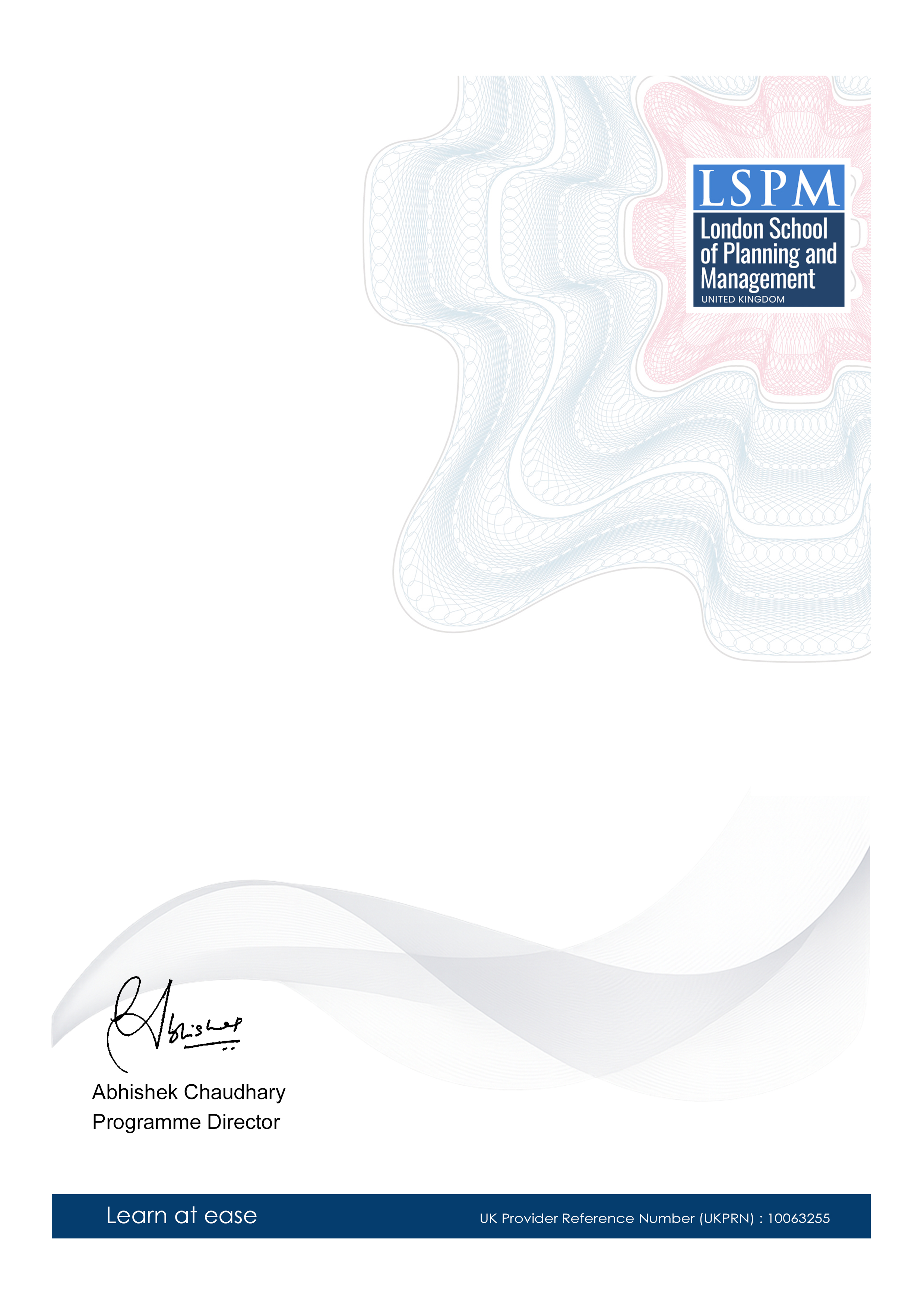Advanced Certificate in Robotics Integration for Humanitarian Crisis Response
-- viewing nowThe Advanced Certificate in Robotics Integration for Humanitarian Crisis Response is designed for professionals seeking to leverage robotics technology in responding to emergencies. This program equips learners with the skills to integrate robots into humanitarian operations, enhancing efficiency and effectiveness.
5,422+
Students enrolled
GBP £ 149
GBP £ 215
Save 44% with our special offer
About this course
100% online
Learn from anywhere
Shareable certificate
Add to your LinkedIn profile
2 months to complete
at 2-3 hours a week
Start anytime
No waiting period
Course details
Career path
Advanced Certificate in Robotics Integration for Humanitarian Crisis Response
The Advanced Certificate in Robotics Integration for Humanitarian Crisis Response is a specialized program designed to equip professionals with the skills and knowledge necessary to integrate robotics technology into humanitarian crisis response efforts. This program is ideal for individuals who wish to pursue careers in the rapidly evolving field of robotics and its applications in disaster relief and emergency situations.
Job Market Trends
The job market for professionals with expertise in robotics integration for humanitarian crisis response is expected to grow significantly in the coming years. According to a recent report by the International Federation of Robotics, the demand for robots in the humanitarian sector is projected to increase by 20% by 2025. This trend is driven by the increasing need for efficient and effective disaster response strategies, as well as the potential for robots to perform dangerous and repetitive tasks in hazardous environments.
Salary Ranges
Salaries for professionals in this field vary depending on factors such as experience, education, and location. However, according to Glassdoor, the average base salary for a Robotics Engineer in the UK is £42,000 per year. With additional certifications and specialized skills, salaries can increase significantly.
Skill Demand
The skills in high demand for professionals in this field include expertise in robotics engineering, programming, and control systems. Knowledge of human-robot interaction and emergency response protocols is also highly valued. Additionally, strong communication and teamwork skills are essential for collaborating effectively with other professionals in the humanitarian sector.
Career Roles
There are several career roles available for professionals with expertise in robotics integration for humanitarian crisis response. These include:
- Robotics Engineer: Designs, develops, and tests robotic systems for use in humanitarian crisis response. Responsible for ensuring that robots are safe, efficient, and effective in their intended applications.
- Robotics Programmer: Writes code to control and operate robotic systems. Works closely with robotics engineers to ensure that software is optimized for specific applications.
- Robotics Technician: Installs, maintains, and repairs robotic systems. Ensures that robots are functioning properly and are able to perform their intended tasks in hazardous environments.
- Robotics Analyst: Evaluates the effectiveness of robotic systems in humanitarian crisis response. Collects and analyzes data to identify areas for improvement and to inform future development efforts.
Conclusion
The Advanced Certificate in Robotics Integration for Humanitarian Crisis Response is a valuable credential for professionals seeking to enter or advance their careers in the rapidly growing field of robotics and its applications in disaster relief and emergency situations. With a strong foundation in robotics engineering, programming, and control systems, graduates of this program are well-positioned to make significant contributions to the field and to help save lives in the face of humanitarian crises.
Entry requirements
- Basic understanding of the subject matter
- Proficiency in English language
- Computer and internet access
- Basic computer skills
- Dedication to complete the course
No prior formal qualifications required. Course designed for accessibility.
Course status
This course provides practical knowledge and skills for professional development. It is:
- Not accredited by a recognized body
- Not regulated by an authorized institution
- Complementary to formal qualifications
You'll receive a certificate of completion upon successfully finishing the course.
Why people choose us for their career
Loading reviews...
Frequently Asked Questions
Skills you'll gain
Course fee
- 3-4 hours per week
- Early certificate delivery
- Open enrollment - start anytime
- 2-3 hours per week
- Regular certificate delivery
- Open enrollment - start anytime
- Full course access
- Digital certificate
- Course materials
Get course information
Earn a career certificate

